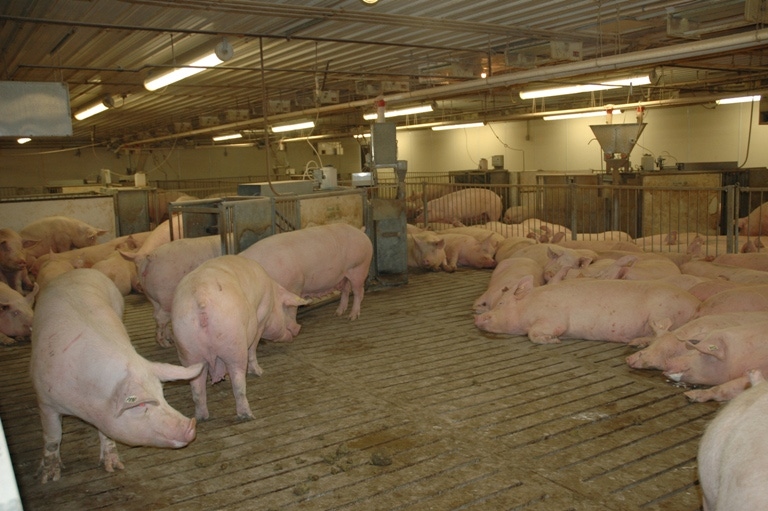AFBF, NPPC challenge California’s Prop 12
Appeals court hears argument for how California’s sow gestation space requirements conflict with Commerce Clause.

The National Pork Producers Council (NPPC) and the American Farm Bureau Federation (AFBF) jointly filed their opening brief to the U.S. Court of Appeals for the Ninth Circuit, asking the court to strike California’s Proposition 12 as invalid.
Prop 12 governs housing standards for sows kept for commercial breeding purposes that are “six months or older or pregnant.” It defines confining a sow “in a cruel manner” as confining a sow "in a manner that prevents the animal from lying down, standing up, fully extending the animal’s limbs or turning around freely” and, after Dec. 31, 2021, “confining a breeding pig with less than 24 sq. ft. of usable floorspace per pig.”
Beginning Jan. 1, 2022, Prop 12 prohibits the sale of pork not produced according to California's highly prescriptive production standards and applies to any uncooked pork sold in the state, whether raised there or outside its borders.
Prop 12 imposes arbitrary animal housing standards that reach outside of California's borders to farms across the U.S. By attempting to regulate businesses outside of its borders, California's Proposition 12 violates the Commerce Clause of the U.S. Constitution, according to the brief.
Prop 12 “imposes an enormous and costly burden on interstate commercial transactions, requiring wholesale rebuilding of tens of thousands of sow farm facilities and massive operational changes in how farmers care for their sows,” the filing explained. Additionally, “it achieves no consumer health benefit at all — though that was touted to voters as one of its goals — and far exceeds any right of California to determine what its own citizens eat by regulating as a practical matter how pork is produced nationwide.”
California produces hardly any pork, but residents consume 13% of all the pork eaten in the U.S. As a result, California imports huge quantities of pork raised in other states. It requires the offspring of around 673,000 sows annually to satisfy California consumers’ demand for pork, yet only about 1,500 sows are commercially bred in California, according to NPPC and AFBF.
Currently, less than 1% of U.S. pork production meets the requirements of Prop 12. To comply with the measure, U.S. hog farmers need to start making investment decisions today to be ready by the implementation date, NPPC said.
Most sow farmers — an estimated 72% — care for their sows in individual pens throughout gestation. These pens usually provide the sow with around 14 sq. ft. of space and — for hygiene, safety, animal welfare and caretaking reasons — do not allow the sow to turn around. This reduces sow stress, injury and mortality rates on farms during the critical gestation period; it also protects farm hands, the group added.
The remainder of sow farmers, roughly 28%, keep their sows together most of the time in group pens, which generally provide 16-18 sq. ft. per sow. Almost universally, farmers who use group pens move their sows into individual breeding pens for the 30-40 days between the time a sow finishes weaning a litter through the time she enters estrus (capacity to breed), is re-bred and pregnancy is confirmed.
The Commerce Clause “was included in the Constitution to prevent state governments from imposing burdens on unrepresented out-of-state interests merely to assuage the political will of the state’s represented citizens,” the brief stated.
“If California can condition pork sales in the state on a farm in Iowa raising its sows a particular way, it also can condition the sale of any product imported into California from any other state on the employees who made it having been paid certain hourly wages or having certain employment benefits that satisfy Californians’ moral preferences,” the brief noted.
‘If Californians want to eat only pork produced in a certain way, they can raise their own pork in state and insist on those conditions (and pay more for pork as a result), but the dormant Commerce Clause does not permit them to force their preferences on the industry nationwide and worldwide or, as also results from Proposition 12, on consumers outside California,” the brief added.
About the Author(s)
You May Also Like




.png?width=300&auto=webp&quality=80&disable=upscale)
